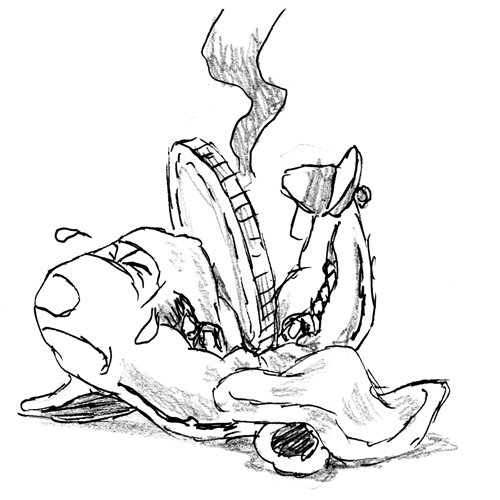
Illustrations: Peter C. Espina/GT
Coins are symbols of wealth and luck. Throwing a coin into a wishing well traditionally is thought to bring you good fortune. But throwing coins into the well of a jet engine just before takeoff for good luck - that's another story.
An elderly flight passenger did just that on Tuesday, delaying take-off for hours. Qiu, an 80-year-old with no record of crimes or mental illness, said she threw coins in hopes of a safe trip. Taking into account Qiu's old age and the fact that she had no intention of willfully vandalizing the plane, Qiu has not been punished.
An old woman in her 80s made a mistake, though in a superstitious and ignorant way. It sounds like a good reason for forgiveness. But can ignorance be regarded as a justified excuse for misbehaviors that put the safety of air passengers in jeopardy? The answer is definitely no.
Imagine the consequences should other passengers boarding the flight not have alerted the crew about the coin-tossing incident. The captain was quoted as saying the metal, if sucked up by the engine, could have caused serious damage, including engine failure, endangering lives of all passengers on board.
A worrying fact in China is that many Chinese flight passengers lack safety awareness. With an increasing number of people who chose to travel by air, largely due to the rapid development of China's economy and an improvement in living conditions, it's nothing new in recent years that travelers were found responsible for flight safety accidents, such as opening emergency doors because of ignorance about flight safety.
In March 2016, a first-time flyer mistook plane's emergency exit for a toilet door and accidentally inflated the evacuation slide. Chaos was caused in another flight after a man opened the plane's emergency door to get some fresh air before taking off. His reason was simple: He sat at the rear of the plane and felt it was too stuffy. All these accidents driven by innocent but ignorant excuses ended up with little punishment for the troublemakers.
International Air Transport Association statistics suggest that China will overtake the US as the world's largest aviation market in the next two decades, with the total number of annual passengers reaching 1.2 billion by 2034. It's a pressing task to ensure flight safety.
One way is to enhance flight safety education to increase safety awareness. More importantly, there are things you don't do on a plane. One must abide by rules and anyone whose actions may bring danger to others must pay the price no matter what the motive. It's suggested that the airline company and passengers sue the old lady in the coin-tossing accident even though she was exempt from legal punishment.
Nothing is more important than ensuring safety on planes. We must adopt a zero-tolerance attitude toward any misbehavior that risks endangering flight safety, so as to better protect every passenger.
The author is a reporter with the Global Times. opinion@globaltimes.com.cn



